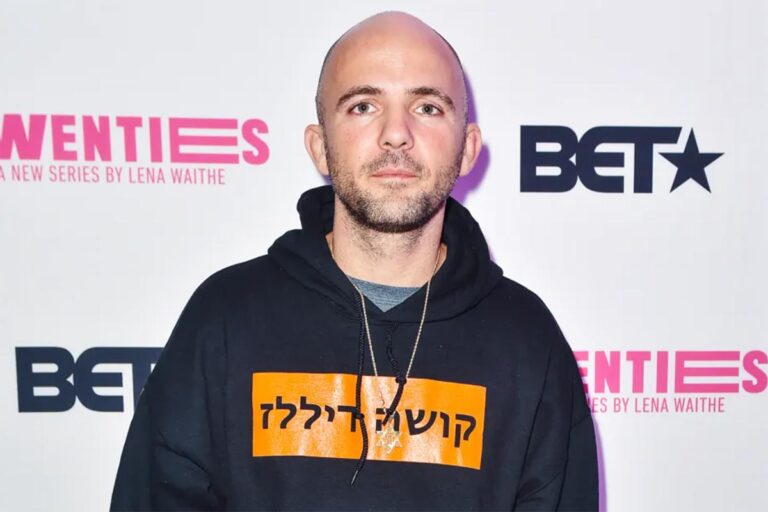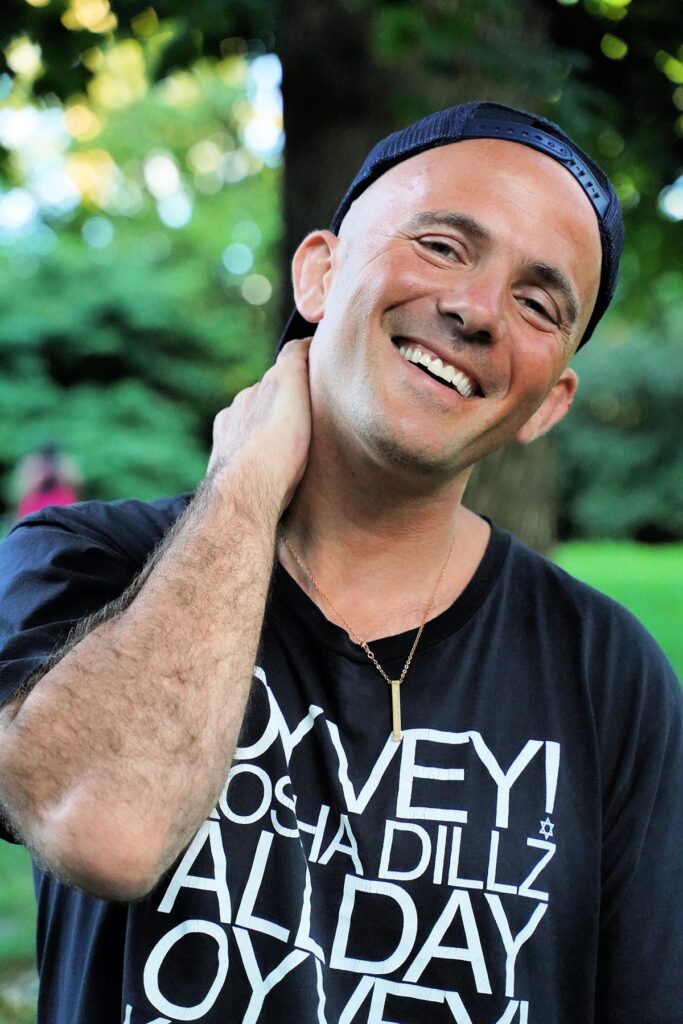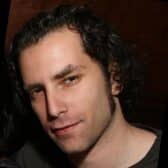
Editor’s note: This article is part of our three-part series on Jewish rappers. Check out our profiles on Nissim Black and Moshe Reuven.
Rapper Kosha Dillz has a talent for seamlessly blending hip-hop and comedy.
Known to his family as Rami Matan Even-Esh, he often incorporates comedic elements in his music videos. A cast member of “Wild ‘N Out” on VH1, hosted by Nick Cannon, Dillz has also branched out into stand-up comedy. He recently returned from a performance in New Zealand.
On September 13, Dillz will host “Bald Hashanah” in Manhattan’s Union Square. This idea sprouted from “BaldFest,” an event he created two years ago to celebrate baldness. With National Bald Day on September 13 being so close to Rosh Hashanah, he decided to merge the two.
“I thought, ‘why not have a Jewish-themed event that is comical?’” he said. He anticipates involving an actual bald rabbi in the event and there may be “Matzah Bald Soup.”

He humorously pointed out that the Hebrew word “Rosh” translates to mean one’s head, adding another layer of meaning to the festival.
Originally from New Jersey, Dillz has lived in various places, including Los Angeles and Israel, and now calls Brooklyn home. He didn’t always embrace his Jewish identity.
“I tried to dismiss it,” he said. “I was doing everything I could to get away from it. But I realized deep down, it was something I really cared about. I thought it was important to show strength.”
In his younger days, a few months spent in jail due to drug-related issues became a turning point. A Christian inmate named Smitty read him biblical passages aimed at assisting addiction recovery.
For Dillz, having someone from a different faith encourage him to embrace his own identity left a lasting impression. “Slowly but surely, I leaned more into Judaism,” he said.
He turned to organizations like Aish HaTorah and various synagogues to deepen his understanding.
“My whole family was born in Israel, except for my father, who was born in Romania and later lived in Israel,” Dillz said. “I had a lot of shame in forgetting Hebrew. I kind of felt like I wasn’t Jewish enough. And with my name, Rami, many would think I wasn’t Jewish. The name Kosha Dillz started as a joke but then it became my real rap name.”
Seeking to reconnect with his roots, he enrolled in an Ulpan in Israel in 2019 and improved his Hebrew skills. He also mentioned that he has been sober for 19 years.
He first knew he had a talent for rapping when he participated in a battle at the Nuyorican Poets Café in Manhattan over two decades ago, at the age of 17.
The VH1 series “Wild ‘N Out” is a battle rap improv game show where two teams of comedians square off against each other. He finds the show extremely rewarding, noting it taps into his inherently competitive spirit.
His creative range is evident in his music videos. “Schmoozin’” toys with the idea of a Hasidic gangster and includes Yiddish phrases, while the lyrics of “Span-Hebrish” blend Hebrew, Spanish, and English.
With “Schmoozin,” his aim was to incorporate comedic elements that might resonate with some and go over the heads of others, such as the reference to “8 Moyel” instead of Eminem’s film, “8 Mile.”
But his tone shifted with “Death Con 3,” a direct response to Kanye West’s infamous antisemitic tirades.
Producing the video, released in October 2022, was a natural reaction for Dillz.
“I’m good at responding to things,” he said. “I was disappointed because I was, like many others, a big fan of Kanye. I didn’t know he would go on to say things that were much worse after that.”
Dillz emphasized the recent rise in antisemitism, racism, and other forms of hate that should be combatted. He has received antisemitic comments online throughout his career.
“I personally do respond some of the time, because that’s me,” he said. “Everyone has to decide for themselves whether to respond or ignore it, because everyone is different and has their own comfort level.”
A significant moment in his career occurred when renowned Bronx rapper Fat Joe spotted him rapping on the streets of Manhattan, near Madison Square Garden. To Dillz’s surprise, Fat Joe took the mic and began rapping alongside him, an act that rappers of his level of fame rarely do.
Their impromptu performance went viral, leading to Dillz flying to Denver in hopes of sharing the stage with Fat Joe, whose real name is Joseph Antonio Cartagena. His wish came true.
Dillz attributes his readiness to perform at a moment’s notice to his experiences with Jewish reggae star, Matisyahu, who would call him up on stage.
“I would attend his shows, not knowing if I would go on or not,” he said. “It was great to be able to perform in front of those crowds, and it’s important to always be ready.”
The two collaborated on “Dodging Bullets” and “For The Ones.”
Dillz has spent years in the music industry and more recently delved into comedy.
Comparing the two fields, he said, “There are a lot of great comics that don’t have any TV credits, and they are grinding every day,” he said. “It’s a very competitive field. Music is competitive, but I think comedy is even tougher.”
What’s his best advice for aspiring musical performers or comedians? Stay on top of taxes, as highlighted in one of his videos.
On a more profound note, Dillz emphasized resilience. “There’s rejection in all parts of life,” he said. “But when you see a performer on TV or on stage, you are seeing the yeses they received. You’re not seeing the nos.”
“To anyone following their dreams, be prepared that there will be rejection. If I lined up all the yeses and nos I’ve gotten, there would be way more nos. You can’t be discouraged by rejection to the extent that it stops you. You have to keep working and keep improving. Then, it’s about what you do with the yeses, and then it’s about what you do with every opportunity,” he added.
Dillz also stressed the importance of humility and being open to learning.
“I got to work with [comedian] Katt Williams and I was speaking with Matt Rife, who is probably the most popular comedian for Gen Z right now,” he said. “So, it’s important to absorb all you can and learn from people.”
He collaborated with Jewish rapper Nissim Black for “The Hanukkah Song 2.0,” a homage to the famed Adam Sandler song. He believes in aligning with artists who have a positive vibe.
Beyond music and comedy, Dillz has written articles for Variety. He also recently created a short film called “Not Everything Has to Be So Serious,” featuring a Holocaust survivor.
Years ago, Dillz released a song called “Bars Mitzvah.” The title cleverly juxtaposes the bar mitzvah with the rap term “bars” for lyrical lines. This wordplay even elicited laughter emojis from Cardi B.
Dillz recognizes that his music inspires many to embrace their Jewish heritage. What message does he hope they take away?
“There’s a lot of personal freedom in being authentically yourself,” he said. “You’re allowed to change as you grow. Everyone grows at a different pace and at a different age.”
Dillz said that whatever one does in life, the goal is to not become complacent and to remember that there are highs and lows, a theme he stressed in his video, “Ups and Downs.”
“I’ve always wanted to push myself,” he said. “I’ve always wanted to try new things. You have to always remember that some things work and some things don’t. You have to be willing to give things a chance.”
Originally Published Sep 10, 2023 10:18PM EDT
